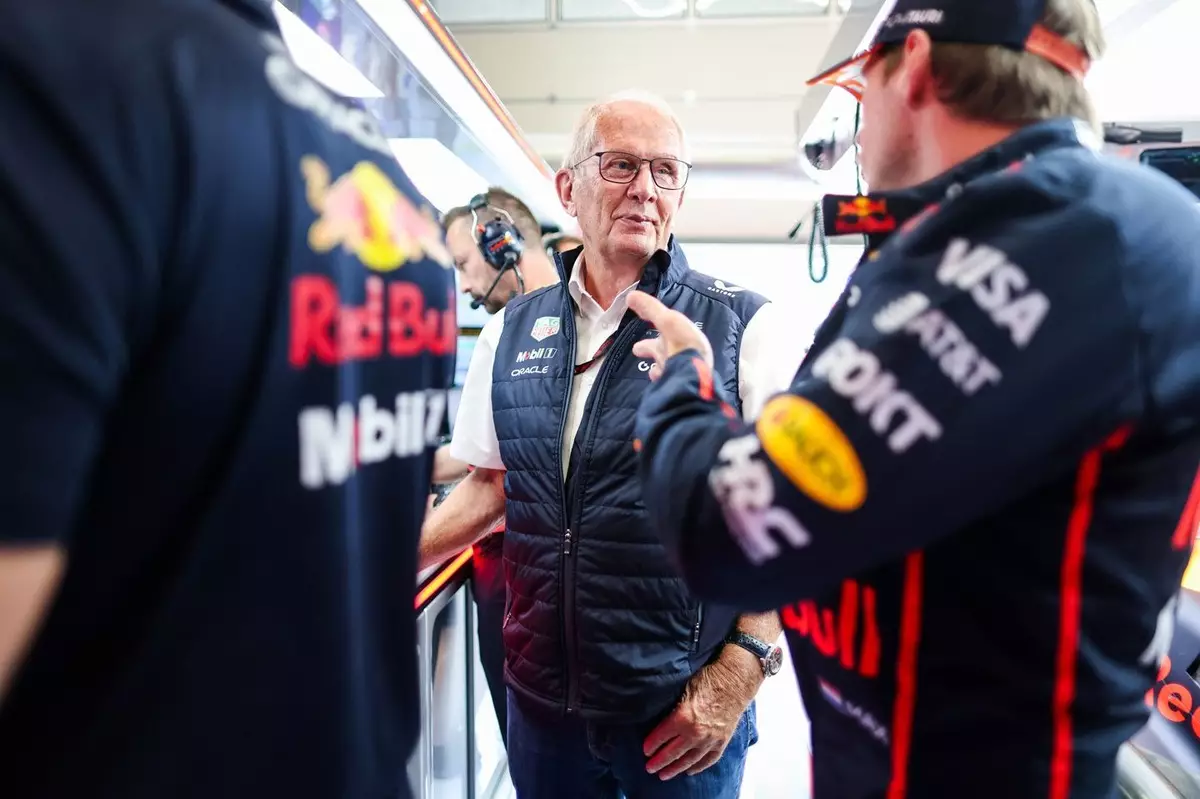Max Verstappen’s recent setbacks at the Austrian Grand Prix have cast a long shadow over his dominant streak in Formula 1. The crash on the first lap, triggered by a rookie driver’s misjudgment, was not just a single race misfortune but a stark reminder of the unpredictable nature of motorsport. For a driver of Verstappen’s caliber, such an event doesn’t simply “happen,” and it prompts questions about whether the current performance dip signals a more profound challenge or just a temporary blip.
What is striking is the mental toll these results can exert on a champion. Verstappen, known for his relentless drive, appeared visibly disconnected after the DNF, shifting his focus away from the race. Instead, he opted to tune into the Spa 24 Hours, an indication that while he may be disappointed, he’s also compartmentalizing setbacks and seeking victories elsewhere. This resilience—an ability to compartmentalize failures and focus on future successes—is what separates true champions from their competitors. Yet, the question remains: how long can Verstappen sustain this mental toughness if the results continue to stagnate or decline?
The fact that Red Bull’s winning streak has ended, and Verstappen has not crossed the finish line first in five races, could potentially dent his confidence. But perhaps more significantly, it exposes the fragility of even the most dominant athletes in the high-stakes universe of Formula 1. Success is never guaranteed, and in a sport driven by nuance, technical excellence, and the caprices of luck, even the brightest stars encounter darkness.
The Contract Conundrum and Future Uncertainty
Despite the recent slump, team advisor Helmut Marko’s stance is one of reassurance—at least publicly. He emphasizes that Verstappen’s contract runs until 2028 and contains clauses that allow for exit underperformance. These provisions are often misunderstood or exaggerated in the media, but their existence indicates a pragmatic approach—one that recognizes the volatility inherent in elite motorsport.
However, Marko’s assertion, that “there is currently no reason to worry,” feels more like a diplomatic stance than a definitive statement about the driver’s future. Verstappen’s own comments—marked by ambiguity and reluctance to confirm future commitments—add fuel to ongoing speculation. When a four-time world champion responds to questions about his contract with a dismissive “I don’t think we need to talk about that,” it subtly hints at unrest beneath the surface. Such responses, though not critical on their face, are often symptomatic of deeper dissatisfaction or at least of a desire to maintain agency amid external pressures.
This ambiguity surrounding Verstappen’s future is not merely a narrative device but a reflection of the high-wire act that top athletes walk. Especially in F1, where sponsorships, technical regulations, and team dynamics can shift rapidly, drivers like Verstappen are acutely aware of the fine line between loyalty and leverage. His apparent detachment from long-term commitments could be a strategic move, a way to keep options open should the current team environment no longer meet his aspirations.
The Realities Behind the Surface: Power, Performance, and Perception
The underlying question is whether Verstappen’s current state of dissatisfaction—evident in his subtle tension and cryptic remarks—will eventually lead to an intervention or a dramatic departure. Red Bull has historically been a team that values loyalty, yet their willingness to accommodate a driver with exit clauses suggests they understand that the driver’s ambition can sometimes outweigh contractual ties.
From Verstappen’s perspective, the pursuit of perfection and stellar performance appears to be a driving force that transcends mere contractual obligations. His silence about the future is, arguably, a reflection not of uncertainty but of a strategic refusal to be boxed in by expectations. If recent results persist, one can’t dismiss the possibility that Verstappen might seek new challenges elsewhere, whether that be within F1 or beyond.
But this scenario is not so much about a looming departure as it is about redefining success and resilience. Verstappen’s career trajectory demonstrates that setbacks are part and parcel of greatness. His capacity to endure, adapt, and remain mentally resilient will ultimately define his legacy far more than a few poor results in the current season. The true test lies in whether he perceives these struggles as opportunities to reinvent himself or signs of impending obsolescence.
In a sport that rewards relentless ambition, Verstappen’s challenge is to resist the temptation of short-term fixes and instead focus on long-term mastery. As fans and critics alike scrutinize his every move, one thing remains clear—his ability to stay composed and strategic amid uncertainty will determine whether he continues to dominate or simply fades from the pinnacle of motorsport.


Leave a Reply